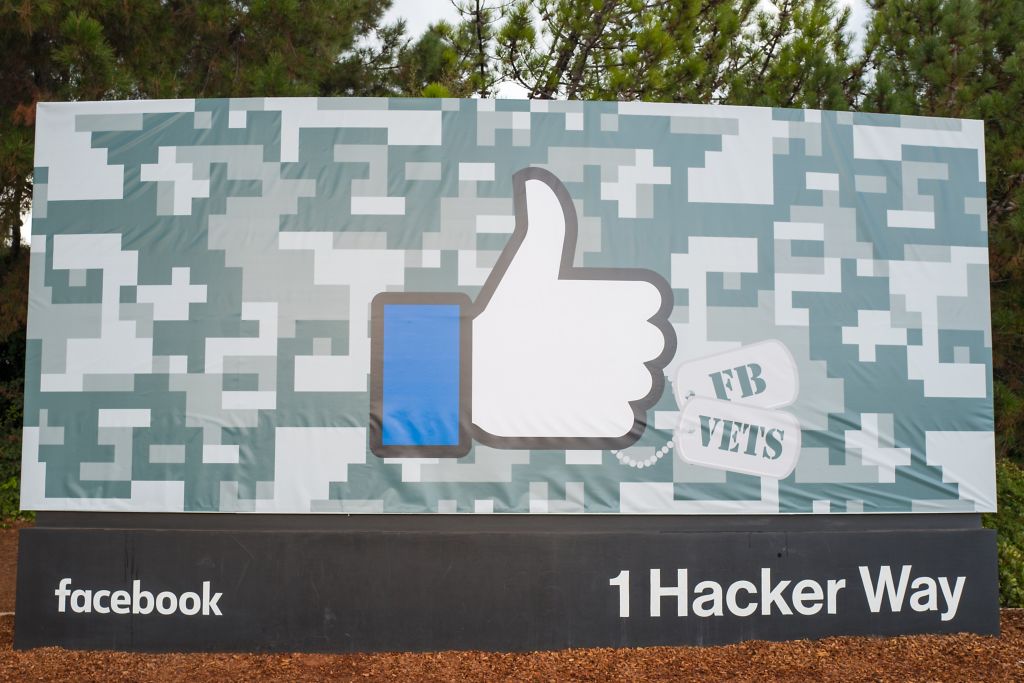On Thursday, Facebook suffered the biggest stock sell-off in U.S. history, $119 billion in one day — a sign investors no longer have faith in the company’s story or brand.
This sell-off came just a week after CEO Mark Zuckerberg explained to the media that he would not take down web sites with information known to be false, including Holocaust denial.
That kind of baffling blunder suggests a corporation and CEO that has lost its way entirely, that simply has no idea what its brand is.
“This is pent-up anger, and the markets exploded at Facebook,” marketing professor Scott Galloway, author of a book on the tech giant, told Yahoo. “It’s deeper than a one-day sell-off. It’s like when your husband screams at you for leaving the garage door open. It’s not about the garage door. It’s about something else.”
The fact is Zuckerberg has made three devastating and inexcusable blunders with his company that have all but destroyed its brand, as I as explained in my new book, How to Go Viral and Reach Millions:
- Facebook has never had a coherent brand story.
- Facebook isn’t in sync with its customers on the core value of privacy.
- Zuckerberg turned Facebook into the world’s biggest media company, but even to this day he refuses to accept the many responsibilities that role entails.
Zuckerberg’s first mistake was that he never created a powerful and consistent brand story for Facebook the way, say, Steve Jobs did at Apple with advertising campaigns like “Think Different.”
So we don’t have an answer to the essential question: What is CEO Mark Zuckerberg’s priority — people or profits? To the extent that Facebook has a widely known origin story, it’s one written by someone else, Aaron Sorkin, for the movie The Social Network — and, fairly or not, it portrays a company founded on personal betrayal, on choosing profits over people.
To the extent that Facebook is known for a brand statement or slogan or motto or mantra, it’s “Move Fast and Break Things,” as Zuckerberg explained in 2009.
But what’s kind of cute and cutting edge for a small but fast-rising and over-achieving underdog — what works for a David taking on Goliath — can backfire like a misused slingshot once you become the giant. Giants are often clumsy and break big things: for example, America’s election process or the privacy of tens of millions of people.
As Wired magazine explained in a March cover story on Facebook, that motto “wasn’t just a piece of advice to his developers; it was a philosophy that served to resolve countless delicate trade-offs — many of them involving user privacy — in ways that best favored the platform’s growth.”
Zuckerberg’s second mistake is that Facebook is simply not in sync with its customers on a core value — privacy. Users want their data protected, but in 2010, Zuckerberg said he believes privacy isn’t a “social norm” anymore. Facebook’s business model is built around selling your information to others and micro-targeting you with ads. Facebook has been more focused on serving its paying customers than on its users. As the saying in Silicon Valley goes, “If you’re not paying for the product, you are the product.”
Third, Zuckerberg has refused to accept that Facebook has become the Goliath of the news media. Zuckerberg “pursued a strategy he has often deployed against competitors he cannot buy: He copied, then crushed,” wrote Wired. Facebook became “the dominant force in the news industry,” but Zuckerberg never wanted the responsibilities or regulations that come with being a media giant, so he simply opened the floodgates to all news, real or fake, from journalists and Russian trolls alike.
When the news broke in March 2018 of how a data breach left Cambridge Analytica — and, through them, the Trump campaign — in possession of the personal data of tens of millions of American voters, which was used to micro-target and influence them, Zuckerberg had no story to tell and remained silent for several days. When Apple CEO Tim Cook was asked by MSNBC back in March what he would do if he were Mark Zuckerberg, he said: “I wouldn’t be in this situation.”
And when Zuckerberg was asked repeatedly earlier this month why he wouldn’t ban an extreme conspiracy theory guy like Alex Jones, he actually dug a bigger hole for himself by bringing up Holocaust deniers as an example of false news he would not take down.
Finally, that brings us to this week, when Facebook explained on its second quarter earnings call that revenue growth would slow down in subsequent quarters “because of factors that include more data privacy options for users,” as Yahoo’s Chief Tech Correspondent put it, “in direct response to the Cambridge Analytica scandal.”
The acknowledgment that Facebook can’t maximize privacy and profits at the same time is not earth-shattering, but it is brand-shattering. It destroys the illusion of endless, uncompromised growth the company had been selling to buoy its staggering valuation. Whether Zuckerberg and Facebook can figure out a new story to sell to investors remains to be seen.


